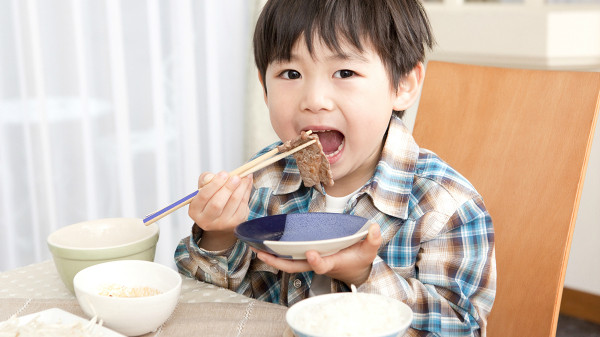9 things Japanese people avoid saying to children are common sayings of Vietnamese parents
When parents yell: 'You're worthless', it will make children lose confidence, withdraw, and not dare to challenge themselves.
1. No, I can't do this.
When I approached the rice cooker, intending to scoop some rice, my father quickly ran over and chased me away, saying, "No, you can't do this yet." That statement made my desire to work, to try new things, to help my parents... all disappear.
Instead of doing so, take your child's hand and show him how to do it. This way, he will experience it and feel like he can do it without getting into danger. At the same time, while guiding your child, you can also explain to him why he needs to be careful.
2. I'm not good at anything.
When children break cups or spill water... many parents often yell: "You're useless" or "You spilled it again."
If a child fails because his hands are weak or his skills are not yet proficient, then failure is an opportunity for him to practice more. If he slips up because he is not careful, then failure shows that his thinking is not mature enough. In any case, the saying: "You are not good at anything" will close the door to his future, making him lose confidence, withdraw, and not dare to challenge.
 |
3. Hurry up, hurry up
"Hurry up, it's time for mom to go to work", "Hurry up, it's time to go to bed"... are phrases that many people often use to urge their children to do something. The problem is not that children are slow, but that their thinking speed and the objects of their thoughts are different from adults.
Telling your child to "hurry up, hurry up" will only make him panic and not know what to do. Instead, ask questions that suggest the next steps. For example:
- What are you getting ready to do now? If it's bedtime, why aren't you in bed yet?
- Now that you're dressed, go put on your shoes. Mom is ready, let's go to school.
4. Mom/Dad is busy, please wait a bit.
When a child wants to talk but the parents respond with something like: "Mom/Dad is busy, wait a minute" or ignore the child, there is nothing more hurtful to the child.
If you are really busy, tell your child: "I am doing this now, wait a moment, I will talk to you." It is also a "delay" sentence, but this way of speaking will not hurt the child. However, try to arrange your work to listen to what your child says right away because if you wait until later, your child may not want to share anymore.
 |
5. It's your dad's fault/It's your mom's fault
When the whole family forgets their child's shoes in the car or somewhere, many people have the habit of saying: "It's because your mom/dad forgot." Thus, even if it's not intentional, adults teach children the habit of blaming others. And the next time something goes wrong, the child will immediately say: "It's because of mom/dad." The important thing is to teach children the habit of taking responsibility for their actions and knowing how to manage their belongings from a young age.
6. Be good and play happily with your friends.
This is too much for children. Even for adults, getting along with everyone is very difficult, let alone children. And especially when children are in the stage of learning how to establish relationships, if children are not allowed to fight or compete with friends, in the future, they will not know how to behave when they have conflicts with friends.
7. Just today, just this once
When going to the supermarket, children ask their parents to buy clothes or something, parents click their tongues and buy it and then say: "Just for today, just this once". Teaching children to be patient is important, but once parents let their children break the rules once, they will know how to break the rules a second time. Therefore, never tell your children: "Just for today".
8. Talk too much, ask too much
Children often talk a lot, ask a lot of questions, sometimes they ask the same question over and over again. Many people can't stand it and scold their children: "You ask too many questions, I just answered them." Children themselves don't know why they want to ask so many questions, but their mother's grumpy attitude will make them afraid to speak their minds for fear of being scolded.
9. Good children, good students, only then will parents love them.
If the love of parents for their children is conditional, it will make the children misunderstand that achievements can be exchanged for toys, clothes and love from their parents. A child who is scolded or beaten until crying by his/her parents still hugs his/her parents' legs - that is because he/she loves them unconditionally. Therefore, even in words, parents should never use their love as a condition for exchange. Parents' love is not the destination for children to reach, it must be a stepping stone and a support for them to reach success.
According to Family and Society


.jpg)
.jpg)


.jpg)

